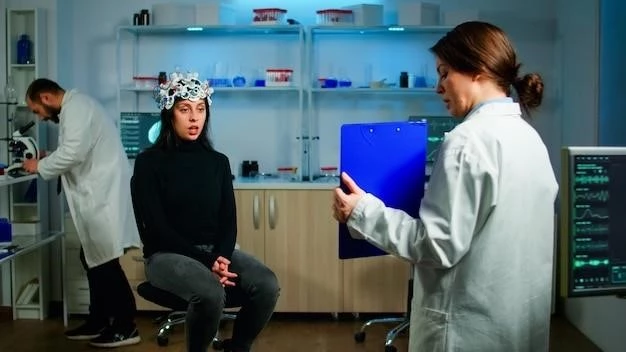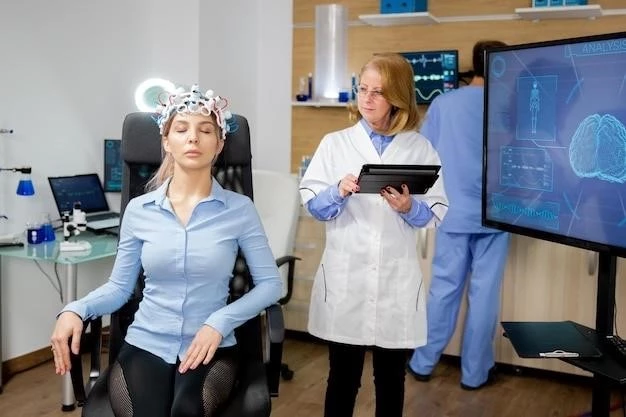Disease ౼ Deafness Neurosensory Pituitary Dwarfism
Deafness Neurosensory Pituitary Dwarfism is a complex genetic disorder involving mutations in genes related to the pituitary gland’s production of growth hormone. The condition is characterized by hormonal imbalance, leading to short stature and sensory abnormalities.
Introduction to the Condition
Deafness Neurosensory Pituitary Dwarfism is a rare genetic disorder that affects multiple systems in the body. It is caused by mutations in specific genes on chromosome 9 that result in abnormalities in the pituitary gland’s function, leading to growth hormone deficiency. This deficiency results in short stature, a hallmark characteristic of the condition. Individuals with this condition also experience sensory abnormalities, particularly hearing loss, as a result of the neurological implications of the disorder.
If you suspect that you or a loved one may have Deafness Neurosensory Pituitary Dwarfism due to symptoms such as short stature and hearing loss, seeking a thorough medical evaluation is crucial. Early diagnosis is key in managing the condition effectively. Understanding the genetic causes and endocrine abnormalities associated with this disorder can help healthcare providers tailor treatment plans to address the specific needs of each individual.
Although living with a genetic disorder like Deafness Neurosensory Pituitary Dwarfism can present challenges, advancements in research offer hope for improved treatment options and management strategies. By staying informed and working closely with healthcare professionals, individuals with this condition can lead fulfilling lives while addressing the unique aspects of their health needs.
Genetic Causes
Deafness Neurosensory Pituitary Dwarfism is primarily caused by mutations in specific genes located on chromosome 9. These mutations disrupt the normal functioning of the pituitary gland, leading to growth hormone deficiency and subsequent short stature. The genetic abnormalities associated with this disorder affect the production and regulation of hormones that control various bodily functions, resulting in a range of symptoms including hormonal imbalance, sensory abnormalities, and pituitary dysfunction.
Understanding the genetic basis of Deafness Neurosensory Pituitary Dwarfism is essential for accurate diagnosis and appropriate treatment planning. Genetic testing can identify the specific mutations responsible for the condition, enabling healthcare providers to tailor interventions to address the underlying genetic factors contributing to the disorder. Additionally, genetic counseling for individuals and families affected by this genetic disorder can provide valuable information about inheritance patterns and help with family planning decisions.
Research into the genetic causes of Deafness Neurosensory Pituitary Dwarfism continues to advance our understanding of this complex disorder. By uncovering the specific genes and mutations involved, scientists and healthcare professionals can develop targeted therapies and interventions aimed at mitigating the impact of the condition on individuals’ health and well-being. Stay informed about the latest developments in genetic research related to Deafness Neurosensory Pituitary Dwarfism to empower yourself or your loved ones in managing this genetic disorder effectively.
Symptoms and Diagnosis
Individuals with Deafness Neurosensory Pituitary Dwarfism may experience a variety of symptoms that encompass both sensory and endocrine abnormalities. Common symptoms of this genetic disorder include short stature, delayed growth, hearing loss, and hormonal imbalances. The combination of these symptoms can significantly impact the overall health and quality of life of affected individuals.
Diagnosing Deafness Neurosensory Pituitary Dwarfism involves a comprehensive evaluation by healthcare professionals, including genetic testing to identify specific mutations associated with the disorder. Diagnostic processes may also include assessments of growth hormone levels, auditory function tests, and imaging studies to evaluate the structure and function of the pituitary gland. Early detection of this condition is crucial for initiating timely interventions to manage symptoms effectively and improve outcomes.
If you suspect that you or someone you know may have Deafness Neurosensory Pituitary Dwarfism based on the presence of symptoms such as hearing loss and short stature, it is essential to consult with a healthcare provider specialized in genetic disorders. By obtaining a thorough evaluation and proper diagnosis, individuals can access appropriate treatment options and support services tailored to their specific needs, promoting better management of the condition and overall well-being.
Understanding Endocrine Abnormalities
Endocrine abnormalities play a central role in the manifestation of Deafness Neurosensory Pituitary Dwarfism. This genetic disorder disrupts the normal balance of hormones produced by the pituitary gland, leading to growth hormone deficiency and subsequent short stature. In addition to growth hormone imbalances, individuals with this condition may also experience disruptions in other hormones that regulate various bodily functions.
It is crucial to understand the impact of endocrine abnormalities on overall health and well-being for those with Deafness Neurosensory Pituitary Dwarfism. Hormonal imbalances can result in a range of symptoms beyond short stature, including metabolic issues, delayed puberty, and thyroid dysfunction. By recognizing these endocrine abnormalities and their effects on the body, healthcare providers can develop targeted treatment plans to address specific hormone deficiencies and optimize patient outcomes.
Education about endocrine abnormalities associated with Deafness Neurosensory Pituitary Dwarfism is essential for individuals living with this genetic disorder and their caregivers. By staying informed about how hormonal imbalances contribute to the symptoms of the condition, patients can actively participate in their treatment and management strategies. Collaborating closely with healthcare professionals specializing in endocrinology can help individuals with Deafness Neurosensory Pituitary Dwarfism navigate the challenges posed by hormonal dysregulation and improve their quality of life.
Treatment Options
The management of Deafness Neurosensory Pituitary Dwarfism involves a multifaceted approach aimed at addressing the various aspects of the disorder. Treatment options may include growth hormone therapy to stimulate growth and improve stature in individuals with growth hormone deficiency. Additionally, hearing aids or cochlear implants may be recommended to address hearing loss associated with sensory abnormalities.
Individuals with Deafness Neurosensory Pituitary Dwarfism may benefit from working with a multidisciplinary healthcare team that includes endocrinologists, genetic counselors, audiologists, and other specialists. This collaborative approach can help tailor treatment plans to address the specific needs of each individual, considering the complex nature of the disorder and its impact on multiple systems.
Alongside medical interventions, individuals with Deafness Neurosensory Pituitary Dwarfism may benefit from supportive therapies and interventions to enhance their overall well-being. Physical therapy, speech therapy, and educational support services can help individuals cope with the challenges posed by the condition and improve their quality of life. Mental health support and counseling may also be beneficial for addressing emotional and psychological aspects of living with a genetic disorder.
It is essential for individuals with Deafness Neurosensory Pituitary Dwarfism and their families to stay informed about the available treatment options and work closely with healthcare providers to develop a comprehensive care plan. By exploring various interventions and approaches tailored to the individual’s needs, individuals with this genetic disorder can enhance their health outcomes and optimize their quality of life.
Management of the Condition
Effectively managing Deafness Neurosensory Pituitary Dwarfism requires a comprehensive and individualized approach that addresses the diverse challenges posed by the disorder. Regular monitoring of growth hormone levels and growth progression is essential to evaluate the effectiveness of growth hormone therapy and adjust treatment as needed to optimize outcomes.
Managing sensory abnormalities, such as hearing loss, involves regular assessments by audiologists and ENT specialists to ensure appropriate interventions, such as hearing aids or cochlear implants, are effectively meeting the individual’s needs. It is important to prioritize auditory health and seek timely adjustments to hearing devices to improve communication and quality of life.
In addition to medical treatments, the management of Deafness Neurosensory Pituitary Dwarfism should include ongoing support services to address the physical, emotional, and educational needs of affected individuals. Accessing resources such as support groups, educational accommodations, and mental health services can enhance overall well-being and provide crucial support for coping with the challenges of living with a genetic disorder.
Engaging in regular follow-up appointments with healthcare providers, including endocrinologists and genetic counselors, is essential for monitoring the progression of the condition, adjusting treatment plans, and addressing any emerging concerns. By fostering open communication with the healthcare team and actively participating in the management of Deafness Neurosensory Pituitary Dwarfism, individuals can proactively address health needs and work towards improving their overall quality of life.

Research and Future Perspectives
Ongoing research into Deafness Neurosensory Pituitary Dwarfism holds promise for advancing the understanding and management of this complex genetic disorder. Scientists are investigating new genetic testing methods to identify mutations associated with the condition more efficiently, leading to earlier diagnosis and targeted treatment strategies.
Advancements in gene therapy and precision medicine offer potential future treatments that may address the underlying genetic causes of Deafness Neurosensory Pituitary Dwarfism. Targeting specific gene mutations responsible for the disorder could pave the way for personalized therapies that aim to restore hormonal balance and improve growth outcomes for affected individuals.
Emerging technologies and scientific breakthroughs are also opening doors to innovative interventions for sensory abnormalities associated with the condition. Research in auditory regeneration and neural stimulation may offer novel approaches to addressing hearing loss in individuals with Deafness Neurosensory Pituitary Dwarfism, enhancing their quality of life and communicative abilities.
As research continues to expand our knowledge of the genetic and physiological mechanisms underlying Deafness Neurosensory Pituitary Dwarfism, future perspectives envision a more targeted, precise, and holistic approach to managing this rare genetic disorder. By staying informed about the latest research developments and participating in clinical trials, individuals affected by the condition can contribute to advancements in treatment options and potentially benefit from cutting-edge therapies tailored to their specific genetic profiles.
